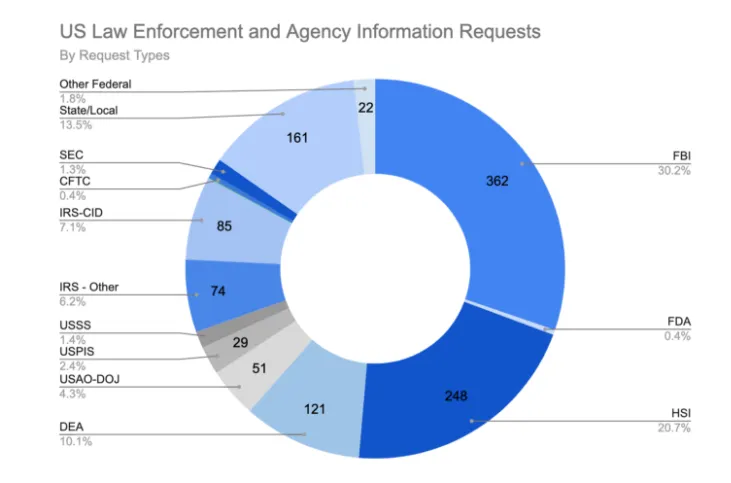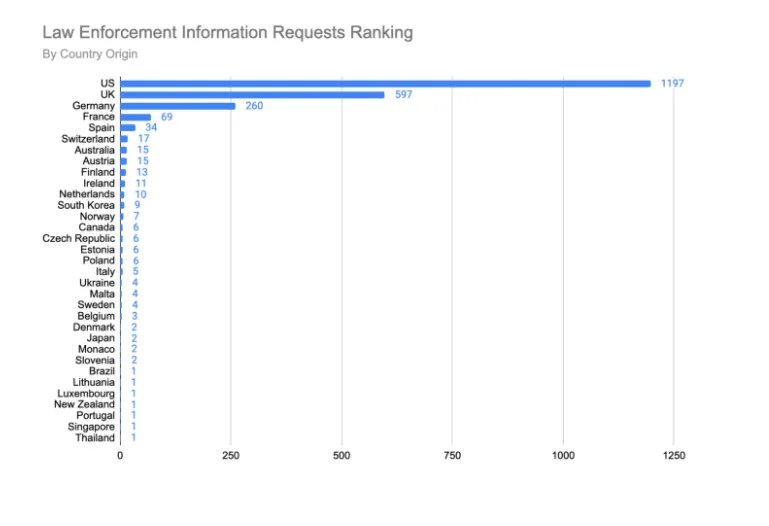In brief
- Coinbase published its second Transparency Report
- The company has yet to report on whether it is pushing back on the thousands of requests
A new report from Coinbase reveals the extent to which the cryptocurrency giant has become the focus of investigations by U.S. authorities and law enforcement around the world. The so-called Transparency Report, released on Wednesday, shows Coinbase received 4,227 requests for customer data in 2020 and that the pace of requests is increasing.
It is not surprising that law enforcement is demanding data from Coinbase given the explosion in popularity of cryptocurrency, and the potential money laundering and other legal risks that come along with that.
What is remarkable, though, is the range of agencies asking for customer information. As the chart below shows, the U.S. agencies knocking on Coinbase's door range from the FBI and Drug Enforcement Agency to the country's tax collector, the IRS, and the Food and Drug Administration:

The numbers in the chart above reflect only U.S. law enforcement requests from the second half of 2020, which came to 1,197 in total—a slight increase from the 1,113 requests received in the first half of the year. Meanwhile, the overall number of requests on a global basis jumped more than 17% during this period, in part due to a 20% increase in demands from officials in France.
Here is the breakdown of Coinbase law enforcement requests from around the around the world, showing that over 90% came from the U.S., the U.K. and Germany:

This is the second such Transparency Report that Coinbase has published. Companies like Google and Twitter have published them for years and Coinbase's first report, published in October, came in the midst of demands from civil liberties groups like the Electronic Frontier Foundation that crypto companies shed more light on law enforcement requests.
While the Coinbase reports represent an important step in the push for greater transparency, they are relatively bare-bones compared to similar reports issued by the likes of Google and Apple. The reports from those tech companies and others typically include more detail about the nature of the investigations they face. And significantly, Google and others explain how they have responded to the requests—either by granting them or, in many cases, fighting the requests in court.
Meanwhile, Twitter, has been engaged in a long running fight with the FBI for the right to publish more details about the agency's demands.
In October, an executive at Coinbase said the company would publish information about its effort to push back on overly broad law enforcement requests in future reports, but it has yet to do so. The company has engaged in heated legal battles with the IRS in the past over demands for customer data, but it appears to have taken a more conciliatory stance in the last year.

